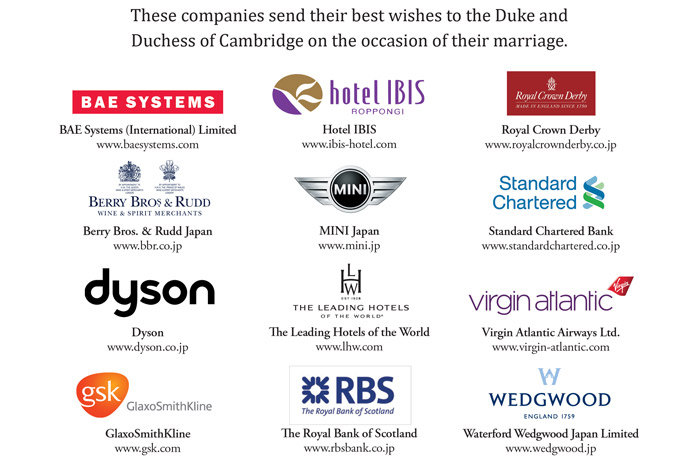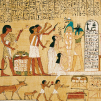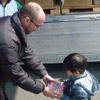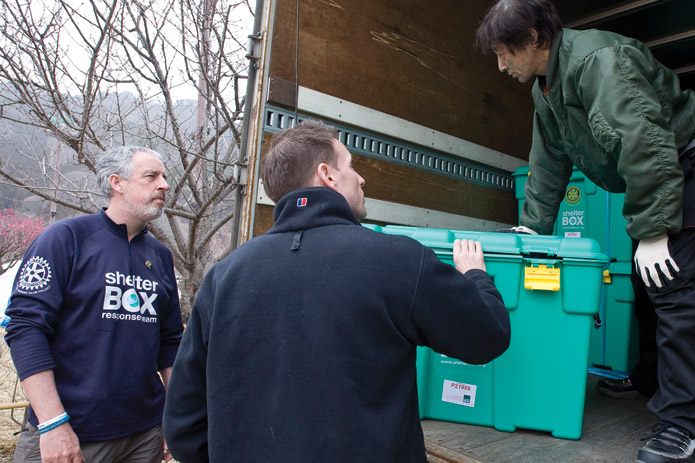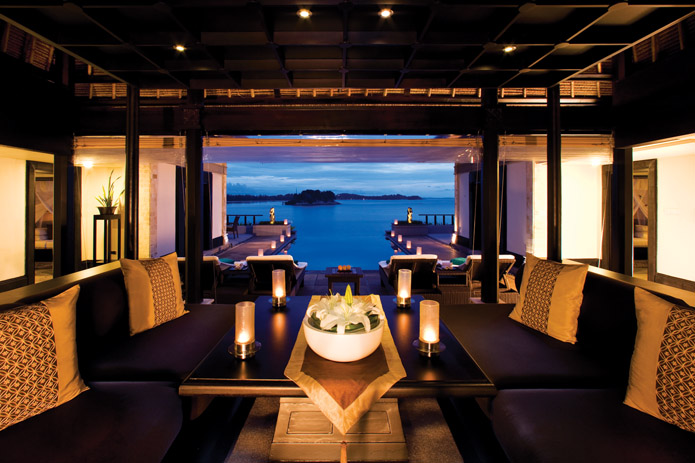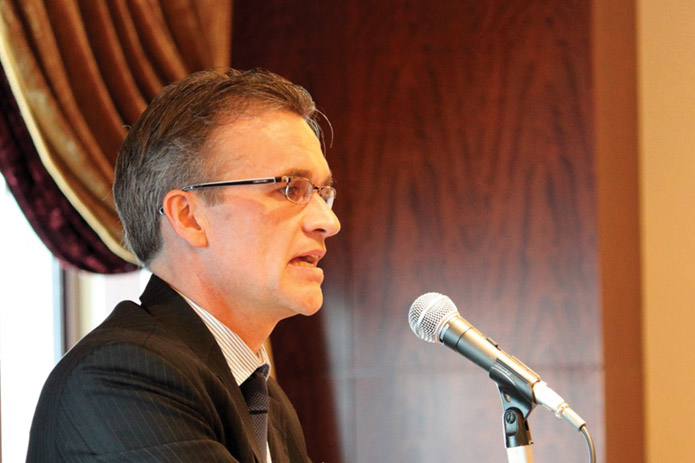I am delighted to send this message to the readers of BCCJ ACUMEN on the occasion of the marriage of the Duke and Duchess of Cambridge.
The day of the wedding was a national holiday and a day of celebration across Britain. In all parts of the United Kingdom, families, friends and neighbours celebrated the wedding at home as well as in many colourful street parties. And hundreds of thousands more were in London, with tourists from around the world, soaking up some of the very special atmosphere of the day and trying to catch a glimpse of the royal couple.
The wedding service took place in the gothic splendour of Westminster Abbey. This magnificent place of worship has seen 38 coronations and 14 royal weddings. It has also been the final resting place of 17 monarchs. Following the ceremony, the royal couple and their close family travelled to Buckingham Palace in horse-drawn state carriages, escorted by mounted and marching military personnel in ceremonial uniform. At Buckingham Palace, in traditional style, they greeted the crowds outside from the balcony.
This happy day was a celebration not only of the monarchy, but of British ceremonial traditions. It also reflected aspects and values of modern Britain.
As British Ambassador, I greatly value the opportunity to speak to Japanese audiences about my country today. And while I always respect the affection that I know many Japanese feel for the traditions of Britain, I also try and give an impression of how Britain has changed in my lifetime and become a more diverse and more innovative society. The guests at the Royal Wedding represented many sections of modern British society, including charity workers, serving and former military personnel, religious leaders, musicians, sportsmen and women, as well as members of local communities. This is a wedding of the digital age. Many of the details were conveyed through the official Royal Wedding website at www.officialroyalwedding2011.org, and via social media. And the wedding itself was streamed live on the official website.
The Royal Wedding marks the start of a very exciting period for the United Kingdom and for the Royal Family. Next year will be the Diamond Jubilee, the 60th Anniversary of Her Majesty Queen Elizabeth the Second’s accession to the throne. In June 2012, there will be celebrations across the country to mark her reign, which is the second longest in our history after Queen Victoria’s reign from 1837 until 1901. In July 2012, London will host the 2012 Olympic and Paralympic Games. And we are sure that the millions who visit to experience the Games first hand, will also discover why Britain is one of the most exciting places to live and work in, as well as to visit, in the world.
Britain is a dynamic and creative country because it is an open society. We have always thrived on the exchange of goods, ideas and people. We are now one of the most culturally and ethnically diverse countries in the world, home to 270 different nationalities speaking 300 different languages. This diversity strengthens the fabric of our society. We protect it by promoting and respecting values which should underpin every democracy—freedom of speech and worship, the rule of law and equal rights regardless of race, gender or sexuality. Tolerance is the central pillar of British society.
We are also a global hub for travel and commerce. Britain is the leading recipient of inward investment in Europe, including over 1,200 companies from Japan employing over 100,000 people. London is the world’s leading international finance centre, including all the major Japanese financial companies. Britain is a top destination for education and tourism, with over 400,000 young people coming to study each year and 13 million tourists.
Britain takes an active and leading role in multilateral organisations such as the UN, NATO and the EU, working hard within them, as well as with our major international partners like Japan, to tackle some of the most pressing issues of our time such as climate change, energy security, global economic reform and nuclear proliferation.
It is a particular pleasure to be talking about the Royal Wedding and what it means to Britain to an audience in Japan, which is a country with which Britain enjoys such a close friendship. This has been brought home most vividly in the past few weeks, as the British people have responded to the terrible suffering caused by the Great Eastern Japan Earthquake on 11 March. They have given assistance in practical forms, such as the search and rescue team that helped with the immediate rescue operations, and also contributions and aid in kind from many different people and companies, each trying to contribute a little to the enormous task of reconstruction that now lies before the affected communities.
There was an instant outpouring of sympathy and compassion from everyone in Britain for the people of Japan. We have all felt humbled by the courage and dignity shown by those who have suffered in this tragedy, as well as by those who have been helping in the recovery operation, particularly around the damaged nuclear plant in Fukushima. When he signed the Condolence Book at the Japanese Embassy in London on 22 March, Prime Minister David Cameron said that this shows the real spirit of Japan. “It demonstrates that you will recover; we know that and we will be with you all the way”.
I know that this is still a very difficult time for Japan, as the country begins to recover from an unimaginable natural disaster. We want to play as active a part as we can in helping with that process, and in helping also as business slowly begins to resume. Although this is still a sad time for many, I hope that the opportunity to watch the Royal Wedding day on television provided a chance for people in Japan to take a break from the constant, worrying news of the last month. We hope that, in sharing in our nation’s joy, spirits will be lifted and renewed energy given to our Japanese friends.
Photo by Hugo Burnand
